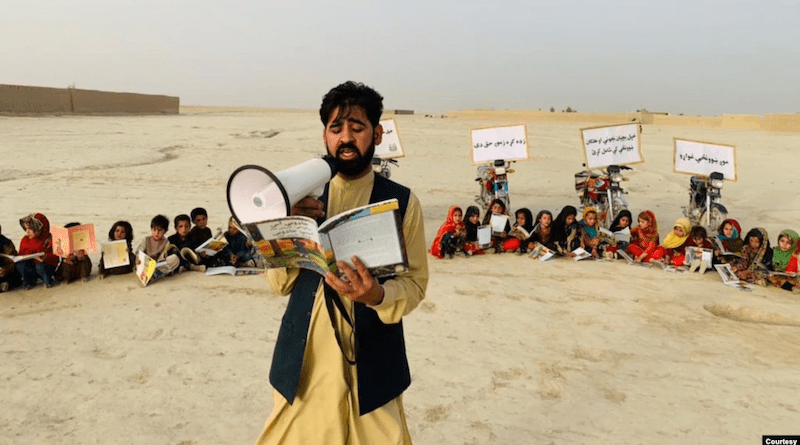The Arrest Of Matiullah Wesa – OpEd
The arrest of Matiullah Wesa, a prominent activist for girls’ education in Afghanistan, is a troubling sign of the ongoing human rights abuses in the country since the Taliban seized control in August 2021. Wesa’s Pen Path charity has been advocating for education for Afghan children, both boys and girls, for more than a decade, with a focus on rural areas of southern Afghanistan.
Wesa’s activism centered on the public demand for girls’ schools and their right to an education under Islamic law. He led high-profile calls for classes to restart, sharing photos and videos of protests, usually in private buildings, after harsh crackdowns on public demonstrations. His efforts have been vital in the fight for girls’ education, as Afghanistan is the only country in the world to bar girls and young women from education because of their sex, with the ban thought to be a personal order from the Taliban’s reclusive and ultra-conservative supreme leader, Hibatullah Akhundzada.
The arrest of Wesa after attending prayers at his local mosque on Friday has sparked outrage among human rights groups and top diplomats, who have called for his immediate release. The family has been warned that intelligence services are investigating them, and that the Taliban authorities are unhappy about their new campaign to promote education for all, which they launched on March 21, the Persian new year, which usually marks the start of the school year in Afghanistan.
The Taliban claims that the ban on girls’ education is only temporary until “Islamic” conditions are met, but critics say that is simply an excuse for a decision that has no religious justification. The Taliban have refused to detail what the conditions are or when schools might reopen, causing concern among human rights activists who fear that girls’ education in Afghanistan is under threat.
The detention of Wesa is the latest sign that the Taliban authorities are determined to stamp out all opposition to their ban on girls and women attending school or universities. However, Wesa’s brother, Attaullah, is determined to keep Pen Path’s work going despite Taliban pressure and the threat to their safety. “We will not stop our work. They will not stop us,” he said.
The international community must continue to speak out against human rights abuses in Afghanistan, including the denial of education to girls and women. Education is a fundamental human right that must not be denied, and activists like Wesa play a critical role in advocating for this right. The arrest of Wesa is a troubling sign of the ongoing challenges facing girls’ education in Afghanistan, and it is essential that the Taliban authorities respect the rights of all Afghan citizens, regardless of their gender.
Moreover, the situation in Afghanistan remains volatile, with reports of violence and instability in many parts of the country. The ongoing conflict affects access to education for both boys and girls, with many schools unable to function properly due to the security situation. In addition, poverty remains a significant issue, and many families cannot afford to send their children, especially girls, to school.
The international community must continue to support efforts to promote education in Afghanistan, particularly for girls and women. This support can come in many forms, including financial aid for schools, training for teachers, and advocacy for policies that promote education for all. It is essential that the international community stands with the Afghan people in their fight for education and human rights.
Hence, the arrest of Matiullah Wesa is a disturbing development that highlights the ongoing challenges facing girls’ education in Afghanistan. The international community must continue to speak out against human rights abuses and pressure the Taliban authorities to respect the rights of all Afghan citizens, regardless of their gender. Education is a fundamental human right that must not be denied, and activists like Wesa play a critical role in advocating for this right. It is essential that the international community supports efforts to for the release of Wesa and pressurize the Taliban to stop human rights violation in Afghanistan.
Zafar Iqbal Yousafzai, author of The Troubled Triangle: US-Pakistan Relations under the Taliban’s Shadow.

